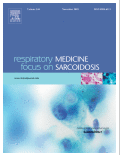 Myasthenia gravis (MG) is characterized by reduced muscle endurance and often leads to respiratory complications.
Myasthenia gravis (MG) is characterized by reduced muscle endurance and often leads to respiratory complications.
A long-term respiratory muscle endurance training (RMET) based on normocapnic hyperpnea was introduced for the first time in MG patients. The authors investigated RMET effects on respiratory endurance (RE), MG symptoms, lung function and physical fitness and compared the results with a control group (CG).
The training period consisted of four weeks intensive training (IT; five 30-min training sessions per week) followed by twelve months maintenance training (MT; five 30-min training sessions over two weeks). Eighteen patients with mild to moderate MG participated as the training group (TG), six patients served as CG. RE, lung function, MG score and physical fitness were tested before and after IT and after three to twelve months of MT.
Only 12 TG patients completed the entire training period. Thirteen months of training significantly increased RE measured as time until exhaustion (Tlim) to 412% of baseline (P < 0.001). The MG score improved from 0.67±0.09 to 0.41 ± 0.1 (p = 0.004), and the number of squats per minute as a measure of physical fitness increased in the TG to 160% of baseline (p = 0.015). While lung function did not change during the training period, we observed a modulation in the breathing pattern at rest with prolonged expiration (122% of baseline, p = 0.028). In addition, TG reported subjective improvements in MG symptoms, respiratory symptoms and physical fitness by 49%, 58% and 64%, respectively (P < 0.001). No significant changes were observed in the CG.
This is the first controlled long-term RMET study in MG patients. The results demonstrated that this normocapnic hyperpnea training is feasible and beneficial for patients with mild to moderate MG and is a valuable supplement to conventional drug treatment.
